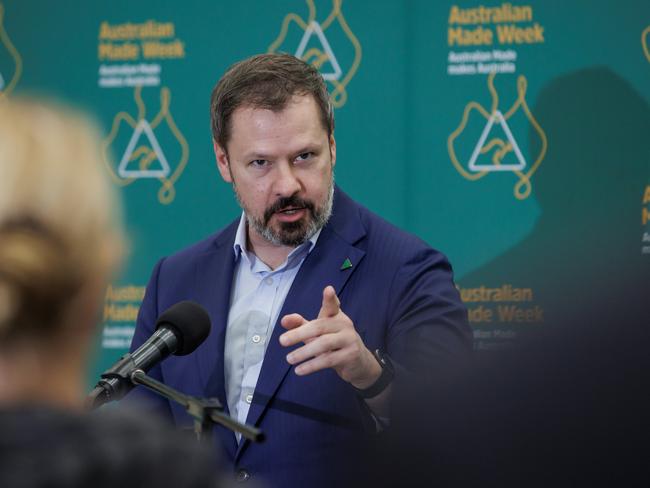
Australia has axed its $1bn plan to launch a network of satellites and instead will pay large sums to others for “second hand” earth observation information.
Earth observation information obtained from satellites is quickly emerging as a key to productivity in agriculture and mining exploration – two great drivers of the Australian economy.
But, increasingly, the earth observation industry is widening its impact on many other sectors, including defence.
We will need to be an important player in this data industry to support the first class work Foreign Minister Penny Wong and Defence Minister Richard Marles have done in the region.
The Chinese and others will quickly fill the gap.
Currently, Australia is dependent on satellite information from the US, Japan and Europe – and this second-hand information not only puts our nation at risk but means we are not keeping up with the latest developments.
Treasury is claiming $1bn savings as a result of the “mothballing”.
This is a complete nonsense.
According to the CSIRO, the Australian government currently spends around $100m per annum on earth observation from space and associated processing.
There are more than 100 active federal and state government programs, representing further government investment of about $950m, with direct dependencies on second hand earth observation data.
The CSIRO believes the programs contribute more than $3.3bn per annum to GDP. Because we need to purchase “second hand” material, not only will we increasingly receive information not directed to our needs, but the $100m bill will rise sharply.
No savings here.

I use the word “mothballing” advisedly because the satellite projects are essential to the nation, so the decision not to launch the satellites will have to be reversed either by a future ALP government or the Coalition.
The last time Treasury damaged the nation with foolish technology actions was when the Coalition government decided to boost research via grants to approved projects. Treasury didn’t like the idea, and their friends in the tax office waited until our high technology Australian companies had spent the money and then gave them a huge tax bill to bankrupt them.
It was an outrageous action, and the industry ministers of the day were made to look foolish.
Some of the victims were able to claim back substantial damages, but Australian research was set back 10 years.
Nothing was learned in Canberra and Industry and Science Minister Ed Husic carries the can for the satellite mistake.
But there is an added irony to the fact that Husic was forced to block a vital “industry and science” project.
Husic is the member for Chifley in NSW.
In the post-war years, Prime Minister Ben Chifley understood, better than anyone else, Australia’s need for vital infrastructure and higher education. The former engine driver drove the development of the CSIRO and was the force behind the Snowy hydro development.
Husic’s father, a Bosnian migrant, worked on the Snowy.
It’s tragic that his son has to announce an end into a project that, in many ways, is the modern equivalent of a Snowy in terms of boosting agriculture and industry.

And it is also ironic that the Chifley-boosted CSIRO has explained to Australians just how important satellite information is to the nation.
The CSIRO explains that satellite information enables monitoring of pastures and helps us sustainably produce protein. Protein can of course come from animals, but increasingly Australia needs to grow carbon-absorbing protein-creating plants like saltbush.
The satellite information is vital to analyse water quality and water resources, including rainfall, vaporisation and soil moisture. This is linked to floods and drought mitigation and management. It is this information that will transform our agriculture, and it is already being used by many farmers.
In mining, we are increasingly using space-derived earth observations to target exploration.
CSIRO says that the satellite information can monitor coastal waters, including the Great Barrier Reef. The list goes on.
Australia was building a space industry with government encouragement.
Now the companies that have invested here have suddenly realised that the luddites in Canberra hold great power and this is not a country that is attuned to a space future.
They will not go to India, the US or Europe.
Husic is a new minister and, if I might be so bold as to give him advice, he should spend more time studying the work of Ben Chifley.
Chifley made lots of mistakes, but he did some wonderful work in setting the foundations for the post-war nation.
He would not be pushed around by the 1940s equivalent of today’s Canberra luddites.







In what is undoubtedly one of the most shortsighted decisions of any government in the past two decades, the Albanese government has decided to abandon the national plan to join our allies in providing earth observations from space.